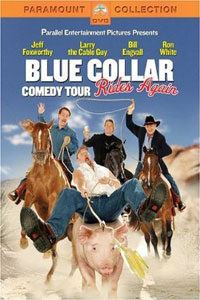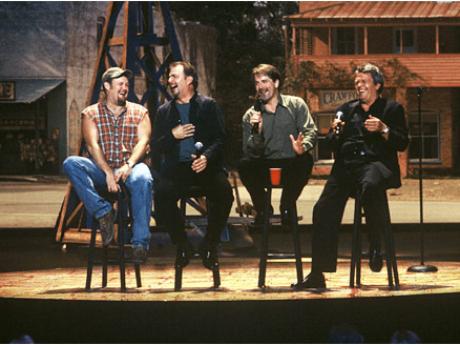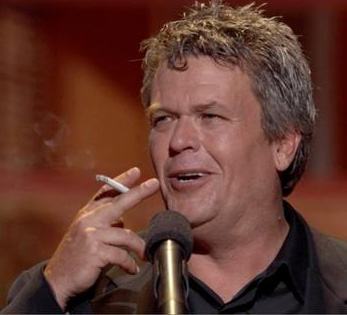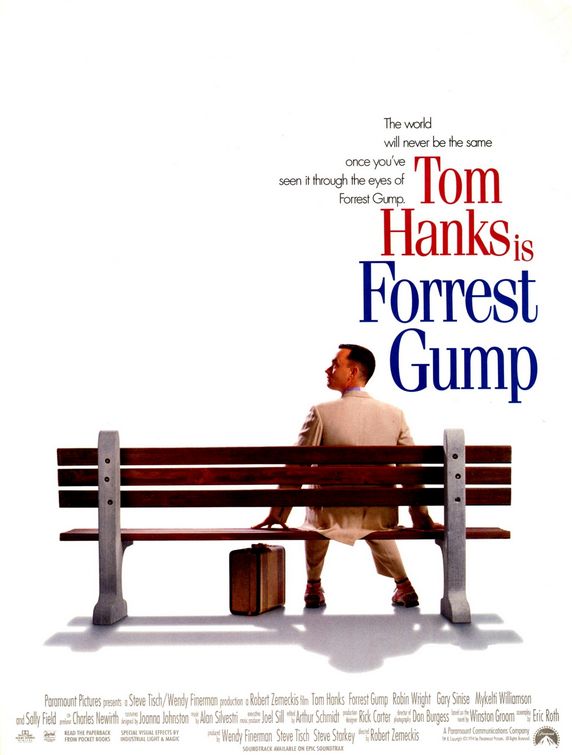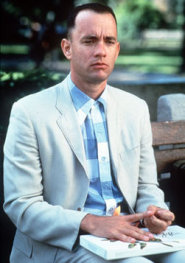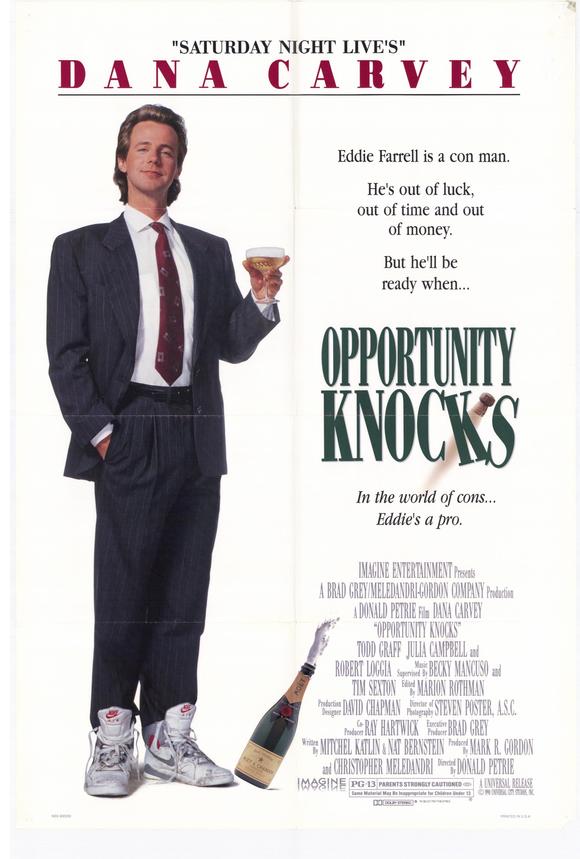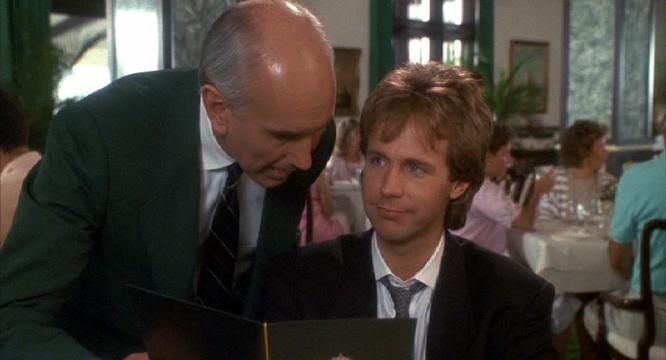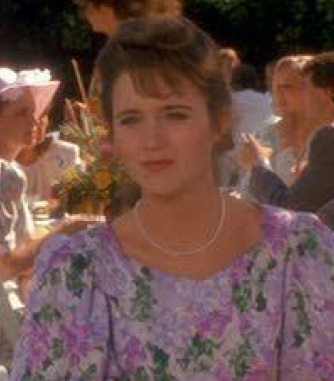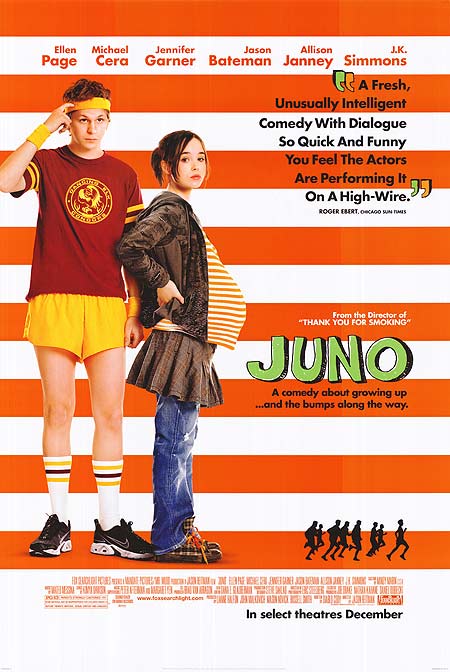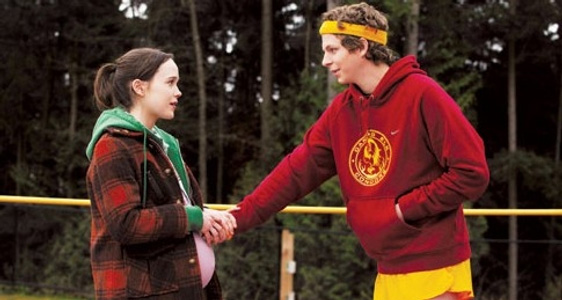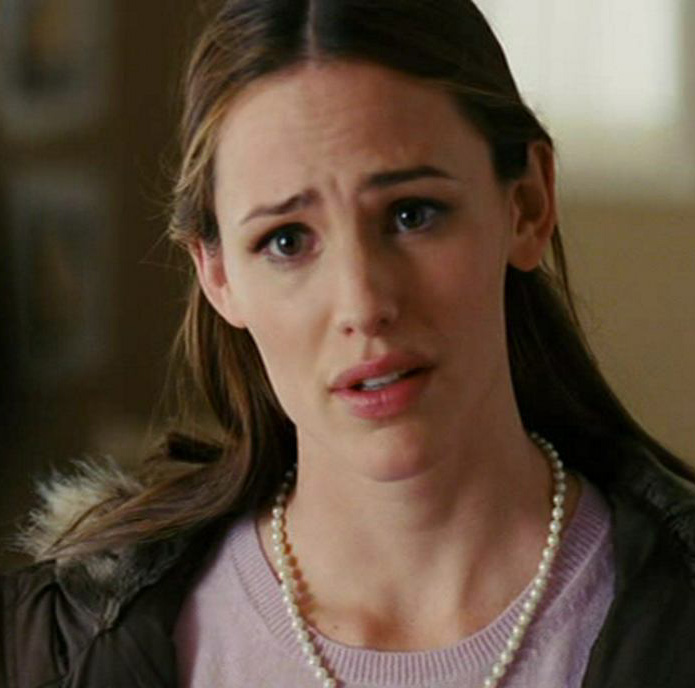Cinema de Gym: 'Minority Report'
 Friday, August 19, 2011 at 4:21PM
Friday, August 19, 2011 at 4:21PM 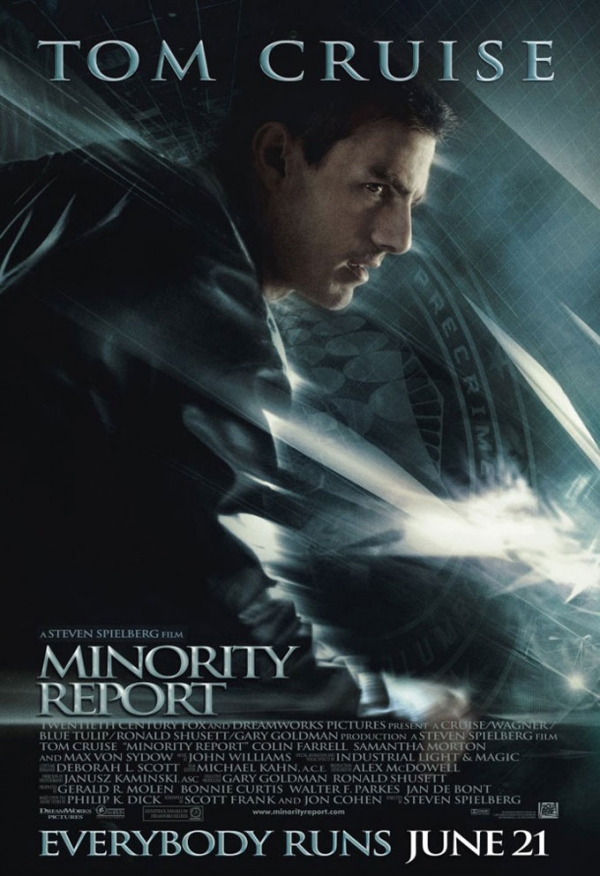 Kurt here. (Surely many of you recall that Michael C. just recently offered an Unsung Heroes post on the Minority Report think tank, so allow me to pre-arrest myself and apologize in advance for the déjà vu.) Minority Report turned out to be a perfect movie to watch in my gym's cardio theater, each of us exercisers piloting our own personal machines like hovercraft-riding Spielbergian cops. Like most, I adore this film in all its blue-filtered beauty, and I'm happy to report that I was lucky enough to walk in for one of my favorite scenes: Tom Cruise's eye transplant surgery.
Kurt here. (Surely many of you recall that Michael C. just recently offered an Unsung Heroes post on the Minority Report think tank, so allow me to pre-arrest myself and apologize in advance for the déjà vu.) Minority Report turned out to be a perfect movie to watch in my gym's cardio theater, each of us exercisers piloting our own personal machines like hovercraft-riding Spielbergian cops. Like most, I adore this film in all its blue-filtered beauty, and I'm happy to report that I was lucky enough to walk in for one of my favorite scenes: Tom Cruise's eye transplant surgery.
Surely the dirtiest segment of this very sterile sci-fi noir, the scene, which sees Peter Stormare's ex-con play doctor with Cruise's fugitive, John Anderton, is squirmingly tactile and visceral, greatly conveying the nightmarish ickiness of its atmosphere. Within the apartment unit, a setting of uglified modernity most evocative of Ridley Scott, the great Stormare enhances the dread tenfold with his mad-scientist line readings, which reveal that he was once arrested by John...for burning his patients. With that stirring revelation, we're invited to sit back and relax in the operating chair, seeing Stormare and his nurse – if I remember correctly – through John's eyes, which, y'know, are about to leave their sockets.
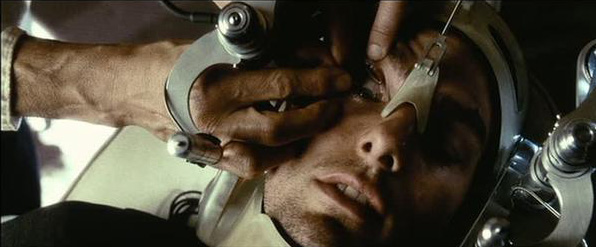
When John awakes, the nightmare continues, as the good doctor has playfully misled him as a means of mild, yet nonetheless grotesque, revenge. Blindfolded, and forbidden to remove his bandages lest he actually go blind, John has a string tied to each arm to lead him to the kitchen and bathroom, which – again, if memory serves – have been intentionally mixed-up. The new scene conjures a sort of schoolyard-bully terror, never greater than when John finally heads for the refrigerator. Reaching for the sandwich and milk his caretakers promised him, John instead grabs a brick of mold-covered grossness, and after spatting it out, attempts to wash out the taste with a big swig of green god-knows-what. Gaaahhh, I can feel the shivers now. It's such a repulsive moment, for which, of course, I tip my hat to Mr. Spielberg.
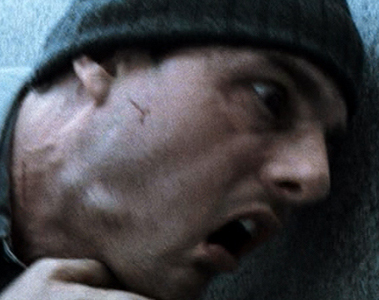 Minority Report supports one of my favorite Tom Cruise talking points, a theme that can be traced through much of his '00s filmography. To help boost John's post-op anonymity, Stormare's doc gives him an emergencies-only, taser-like device that, if zapped under the chin, will turn his face into an unrecognizable glob of Quasimodo skin-putty. If it hadn't been already, vanity was surely the Tom Cruise motif of the new millenium. Everything from the Mission: Impossible franchise to Valkyrie involved some degree of covering up or disfiguring Cruise's million-dollar mug, as if to say there was no greater sin or provocation in mainstream movies. Certainly, Cruise used it as a way to both be self-indulgent and shallowly work against his icon status, superficially striving for character-actordom by obstructing – or, god forbid, destructing – his pretty face. Minority Report came on the heels of Vanilla Sky, wherein this theory is surely most apparent, with Cruise Vanity essentially serving as its own subplot. What does it all mean? Ultimately, I prefer to think of it as eerie foreshadowing, an inundation of Cruise defacement amidst a career climax, after which his face would never be the same.
Minority Report supports one of my favorite Tom Cruise talking points, a theme that can be traced through much of his '00s filmography. To help boost John's post-op anonymity, Stormare's doc gives him an emergencies-only, taser-like device that, if zapped under the chin, will turn his face into an unrecognizable glob of Quasimodo skin-putty. If it hadn't been already, vanity was surely the Tom Cruise motif of the new millenium. Everything from the Mission: Impossible franchise to Valkyrie involved some degree of covering up or disfiguring Cruise's million-dollar mug, as if to say there was no greater sin or provocation in mainstream movies. Certainly, Cruise used it as a way to both be self-indulgent and shallowly work against his icon status, superficially striving for character-actordom by obstructing – or, god forbid, destructing – his pretty face. Minority Report came on the heels of Vanilla Sky, wherein this theory is surely most apparent, with Cruise Vanity essentially serving as its own subplot. What does it all mean? Ultimately, I prefer to think of it as eerie foreshadowing, an inundation of Cruise defacement amidst a career climax, after which his face would never be the same.
Conclusions?
1. Though not exactly one for always putting a distinct stamp on his work, Spielberg sure can draw you into the moment.
2. Though not exactly one for pushing the boundaries of foulness, Spielberg sure can gross you out good.
3. Though often reduced to a negative Russian stereotype, Stormare can bring a whole lot with very little.
4. Though his need to remind us did indeed grow tiresome, Cruise does have one killer face to deface.
If the '00s marked the era of Cruise vanity, which Cruise era are we in now?



